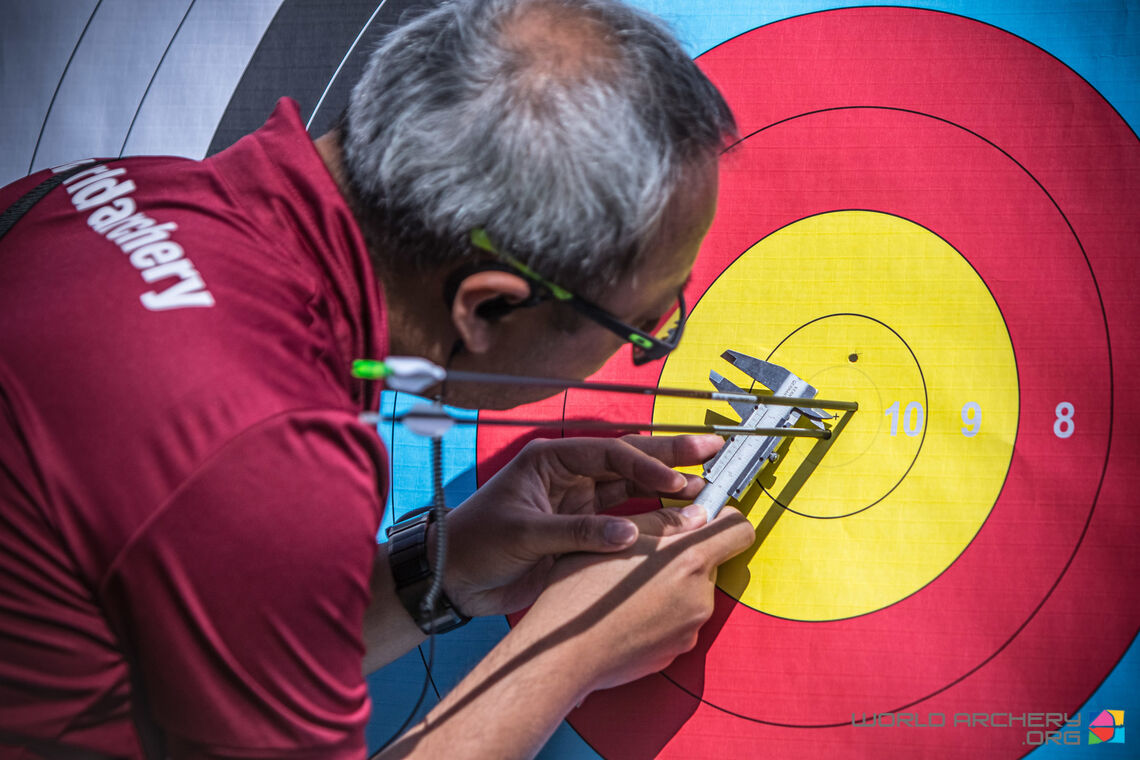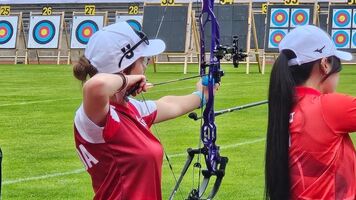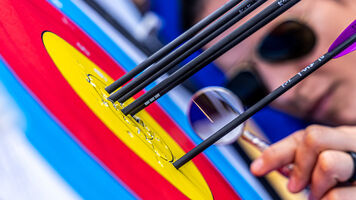
Fair play
No form of cheating is tolerated in archery.
World Archery has a zero-tolerance policy on cheating or abuse of the rules or spirit of the sport of archery.
Cheating is defined as someone acting dishonestly or unfairly to gain an advantage. This applies to doping, competition manipulation and any other action that goes against the principles of fair play and the Olympic values.
Any suspicious activity linked to doping should be reported through the International Testing Agency’s Reveal platform. Other forms of competition manipulation should be reported through the International Olympic Committee’s integrity hotline. Abuse can be reported through World Archery’s safeguarding reporting tool.
There are two main types of cheating: one in which an athlete or official tries to manipulate competition, changing its outcome for sporting gain, and another in which an individual manipulates a competition for someone’s financial gain.
Cheating in archery
Occurrences of cheating are not common at international archery competitions. Scoring is done by a group of athletes or officials in public, equipment is checked regularly, doping is not prevalent and few events are subject to betting. It is the responsibility of everyone involved in the sport to ensure it remains this way.
Archers should stay vigilant during scoring, checking both the target and the scoresheet, to ensure scores are not manipulated accidentally or on purpose by calling or inputting the wrong arrow value. Any value change must be signed by archers or a judge, depending on the competition.
Archers should ensure their equipment complies with the rules as it is checked by a judge before the start of an event, with additional spot checks during competition when necessary, and report any suspicious equipment.
Archers should educate themselves on anti-doping rules, which are found in the World Archery Rulebook, including the prohibited substances list. Random doping tests are carried out at all international events.
Doping
World Archery is committed to the fight against doping and keeping archery clean.
The federation is a signatory to the World Anti-Doping Code and its list of prohibited substances in and out of competition, which is updated by the World Anti-Doping Agency every year. In addition, alcohol remains a banned substance in the sport of archery. International archery’s anti-doping rules are found in the World Archery Rulebook.
Athletes who take prescribed medications that contain substances on the prohibited list can apply for a therapeutic use exemption.
The International Testing Agency runs World Archery’s anti-doping programme.
Read more about anti-doping and clean sport.
Competition manipulation
The term competition manipulation refers to cheating in order to change the outcome of a competition for financial gain, which is also known as match-fixing, and an athlete losing or underperforming on purpose in order to gain an advantage later in the competition, which is also known as tanking or sandboxing.
Due to the transparent nature of the sport and its international competition formats, competition manipulation is difficult and not considered a common occurence.
Betting
Athletes, officials, organisers and any related persons are not allowed to bet on a sport or competition in which they are involved.
For example, an international archer cannot bet on the outcome of a World Archery Championships that they will or will not attend, nor can a family member or friend bet on their matches at the Olympic Games. No person deemed to have insider knowledge can bet on the sport.
World Archery has a data rights partnership for betting, which means that the industry is effectively tracked and monitored to prevent athlete involvement and abuse of clean sport rules.
Athletes and officials must keep exclusive information such as tactics or injuries – not already in the public domain – private and should avoid any situations that seem suspicious or are directly related to betting, result manipulation or the potentially fraudulent sharing of privileged knowledge.
Read more about betting in archery.
Transgender
Athletes whose gender identity is different from the gender assigned to them at birth may wish to compete in the sport of archery.
World Archery is committed to fairness, inclusion and non-discrimination in sports. The federation encourages transgender athletes to practise archery in safe and hassle-free environments, while providing a clear framework for participation in international events in the Eligibility policy for transgender athletes, which was first published in 2023.
This policy includes the requirements that athletes who were assigned a gender at birth must meet to compete under a different gender identity, as well as the application and monitoring processes.
National archery federations may have their own policy for the participation of transgender athletes in domestic events or adopt the World Archery policy in full.


